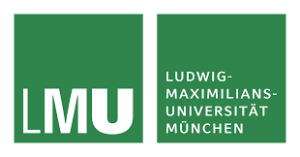Meet the Partners
The CircEUlar consortium brings together internationally renowned scientists from across Europe that have unique interdisciplinary expertise and knowledge that is needed to comprehensively assess the contribution of circular economy strategies to achieve net-zero GHG emissions in Europe and globally by 2050. It is composed of 10 consortium partners and 2 associated partners from a total of 8 countries, including Austria (2), Germany (3), Italy (2), the Netherlands (1), Norway (1), Portugal (1), Switzerland (1) and the UK (1).
Consortium Members
The International Institute for Applied Systems Analysis (IIASA, AT) - Coordinator
The role in CircEUlar
The International Institute for Applied Systems Analysis (IIASA) is an international research institute that advances systems analysis and applies its research methods to identify policy solutions to reduce human footprints, enhance the resilience of natural and socioeconomic systems, and help achieve the sustainable development goals. IIASA is the CircEUlar Project Coordinator and substantively contributes to the research agenda with the development of circular economy driven net-zero GHG pathways based on integrated assessment modeling.
University of Natural Resources and Life Sciences (BOKU, AT)
The role in CircEUlar
The Institute of Social Ecology at BOKU is the global pioneer for economy-wide, biophysical assessments of the circular economy, covering resource use, material stocks of buildings, infrastructure and machinery, and the resulting waste and GHG emissions. In CircEUlar, it aims to substantially progress dynamic modelling, as well as novel data streams and methods for advanced circularity assessments covering stock-flow dynamics, supply chain interactions, and spatially explicit circular economy strategies, showing trade-offs, synergies and potentials for climate change mitigation.
Centro Euro-Mediterraneo sui Cambiamenti Climatici (CMCC, IT)
The role in CircEUlar
CMCC is leader of the activity regarding Circular Provision of Goods and Services (WP3). It is responsible for identifying circular approaches and business practices of circularity that ultimately achieve climate mitigation and developing an online tool that collects supply-side successfull strategies to help firms to identify the best practises for the circular provision of goods and services. CMCC is also responsible for generating a taxonomy of 3D printing technologies and quantify their potential impacts on materials, energy, and GHG emissions. Finally, CMCC conducts a large-scale field experiment to test the effectiveness of the use of a social infomation program to reduce unsorted waste and increase sorted waste.
Ludwig-Maximilians Universität München (LMU, DE)
The role in CircEUlar
LMU leads the development of a culturally sensitive and context specific social scientific investigation of the barriers and enablers of circular consumption practices across Europe.
Norwegian University of Science and Technology (NTNU, NO)
University of Groningen (RUG, NL)
The role in CircEUlar
The University of Groningen’s main role in the CircEUlar project is to study what psychological factors determine whether individuals engage in different circular behaviours, e.g., circular consumption behaviours regarding car use, living spaces, and home appliances, and circular citizenship behaviours through which individuals can urge other actors to support a transformation to a CE.
T6 Ecosystems (T6, IT)
The role in CircEUlar
T6 is responsible for the work package on stakeholder and policy engagement as well as for the coordination of the communication and dissemination.
Technische Universität Berlin (TUB, DE)
Mercator Research Institute on Global Commons and Climate Change (MCC, DE)
Institute of Science and Innovation in Mechanical and Industrial Engineering (INEGI, PT)
The role in CircEUlar
INEGI joined as a widening partner with a view at bringing a new integrated modelling perspective to analysing and quantifying potential interdependencies between mobility and building and household services under the materials-energy-GHG nexus. This will help assessing how specific circular economy strategies may bring about cross-sectoral benefits and widened impacts.
Associated Partners
Swiss Federal Laboratories for Materials Science and Technology (EMPA, CH)
The role in CircEUlar
Empa investigates the potential of repurposing current fossil infrastructure for the energy transition, and assesses resource consumption of transition pathways in regard to planetary boundaries.
University of Oxford (UOXF, UK)
The role in CircEUlar
The Oxford team is mainly researching digitalisation as a potential enabler of circular economy strategies in both households and firms. Examples include provenance and sorting systems for bulk materials, and building information models for new construction.












